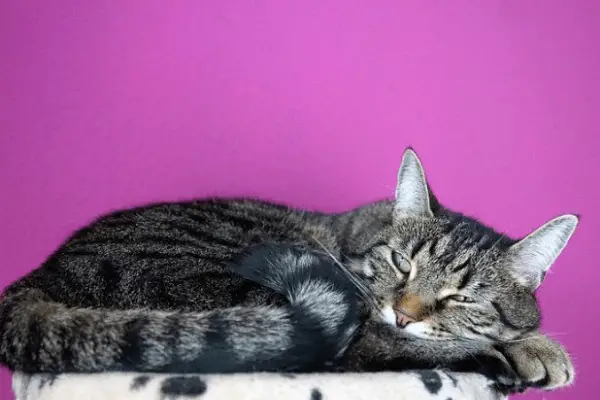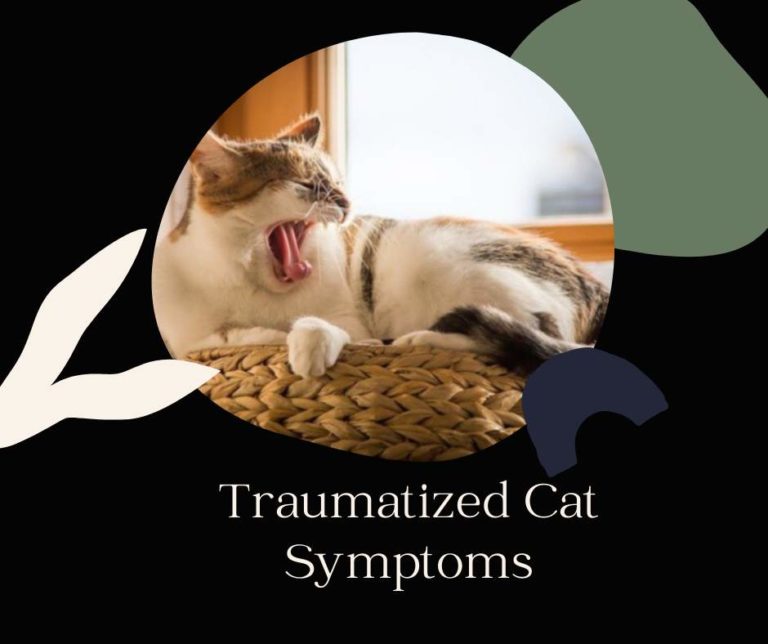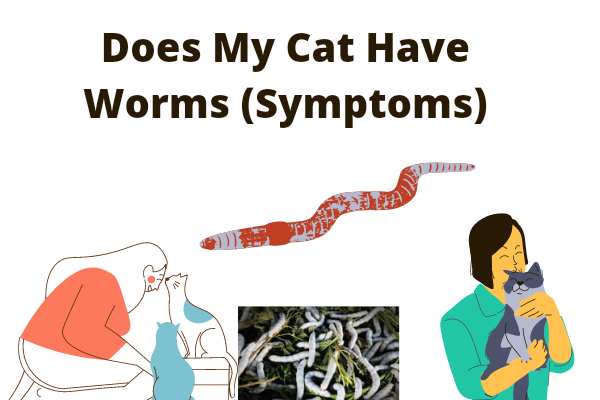How To Comfort A Sick Cat: 14 Useful Tips

Cat owners are always seeking answers about how to comfort a sick cat, and that is exactly what we will be discussing all through this post.
Cats are known for their ability to conceal injuries and diseases.
This is an excellent survival trait in the wild, as revealing any evidence of weakness makes a cat a target for predators and competition.
We must keep a careful eye on our cats and be aware of any minor changes that may suggest that something is amiss.
How To Comfort A Sick Cat
Some typical methods for comforting and caring for a sick cat are as follows:
1. Massage your sick cat
A massage may help even the most stressed person relax and unwind, but did you know it can also benefit cats?
Muscle tightness is caused by the stress of being unwell, and massage therapy is one way to reduce stress in cats.
Begin with lengthy strokes at the top of the neck and work your way down if the cat allows you to.
Try to keep one hand on the cat and the other on the massager, especially if your cat is weak and can’t walk.
Read more: Cat Stomach Problems Symptoms You Should Know.
2. Always keep your sick cat clean
Your ill cat may emit urine or feces.
This will not only make him uncomfortable, but it is also possible that the pee will burn his skin.
Wipe the fur using a clean cloth soaked in clean water, renewing and cleaning it until the cloth is clean.
If he’s dribbling urine all the time, apply a layer of petroleum jelly to the skin of his belly and clean the area regularly.
If you’re using kitty pads, remember to replace them as they get soiled.
Your cat is unlikely to groom himself regularly when he is ill.
Use damp cotton wool balls to keep his eyes clean and clear of discharge.
3. Always approach your ill cat with caution
To avoid his being surprised, approach him quietly and gently touch your sick cat.
Always avoid shocking your sick cat for any reason, since this may cause them to become agitated.
Make sure your sick cat is aware that you want to pet or approach him before approaching him.
Read more: 10 Common Causes & 10 Signs of Depression in Cats
4. Use a quiet and soothing tone to talk to your sick cat
Use a gentle, soothing tone when comforting your sick cat. Love and compassion will be evoked by these tones.
Call the ailing cat-loving names and other things you’d use for positive reinforcement to persuade him that everything is OK.
You may reassure your cat that he isn’t alone by speaking in calm, soothing tones and giving him plenty of gentle pets.
If you want to be sure you’re always there for him, sleep in a sleeping bed next to his bed at night.
5. Offer a comfortable bed and blanket
Consult a veterinarian for advice on the best soft bed to buy for your sick cat. Furthermore, you provide blankets for your ailing cat.
If your cat is chilly or has difficulties controlling his body temperature, use the blanket to keep him warm.
Because older unwell cats are more prone to pressure sores, provide extra cushioning to make them more comfortable.
Choose a setting that is easy to clean and bedding that can be washed afterward in the case of a potty accident.
If your sick cat is chilly, you may keep him warm by placing a heater in the area.
6. Provide a relaxing and peaceful atmosphere
When a cat is unwell, the last thing he or she needs is a stressful atmosphere filled with distracting noises.
As a result, providing a soothing and quiet environment is one of the greatest methods to soothe and care for a sick cat.
This might involve playing soothing and relaxing music for your ill cat to help him recover.
Read more: Most Common Symptoms Of Worms In Cats You Should Know.
7. Never shout at your sick cat
When your cat is sick, they may feel anxious and vulnerable, and they may come to you for assurance that everything will be well and that you will take care of them.
To assist them to relax and feel as though you are beside them when they are in pain, speak to them in a loving, calm tone.
Tell them you love them and that you care about them; even if they don’t understand what you’re saying, they’ll sense your tone.
When dealing with a sick cat, never use a harsh tone because this will simply make him or her more stressed.
8. Keep your sick cat hydrated
A sick cat’s dehydration is a cause for concern, so have your cat examined by a veterinarian.
Give your cat some water if you think he’s thirsty.
Keep a watch on him for indications of dehydration if he takes them. Get medical attention immediately away if he can’t keep fluids down.
Your cat may need intravenous fluid therapy to avert organ damage.
To minimize dehydration, keep a bowl of water near your sick cat.
Read more: How Long After Deworming a Cat Are The Worms Gone.
9. Spend more time with your sick cat
Human interaction is more beneficial to cats especially when they are sick.
You can take advantage of this even if they aren’t sick.
When your cat is unwell, try to spend more time with them than normal so that they can recover faster.
Remember not to annoy your ill cat when spending extra time with them, as upsetting them might cause stress.
10. Avoid movements around your sick cat
Sick cats, especially ones that have been highly socialized, like to be surrounded by familiar things and people when healing.
Keep your cat at home throughout the recuperation phase to make him more comfortable.
Don’t let weird pets around your sick cat, and don’t have too many humans about to keep your sick cat calm.
11. Pet your sick cat to take his drugs
You’ll need to keep an eye on them and manage their symptoms according to their veterinarian’s instructions.
If your veterinarian recommends pain medication for your sick cat, follow the directions carefully.
Give them their medicine on a frequent basis if this is the case to keep them comfortable and pain-free.
Make sure you don’t forget to give your ill cat his or her medication.
Read more: How To Entertain A Bored Cat (10 Simple Hacks).
12. Groom your sick cat
Many cats love getting groomed on a regular basis. If yours isn’t feeling well, it might benefit from the extra care.
Grooming your cat also gives you a chance to examine his or her fur and skin.
Their state may frequently reveal whether or not your cat is in good health.
13. Keep your sick cat’s temperature in check
When cats become ill, they frequently experience fever and overheating.
Because a sick cat can’t regulate his or her body temperature as well as it should, it’ll need your help to cool down.
Keep your cat cool and dry if he has any indications of illness.
Place your cat in an air-conditioned room or under a fan to keep him cool.
Chill water and ice cubes will also help your cat cool down.
Read more: How Long Does Cat Cold Last (8 Signs, Causes & Fix).
14. Pet and provide smaller meals at regular intervals
Prepare a modest bit of your ill cat’s favorite food on a regular basis and feed it to him.
Make sure you have some of your cat’s favorite foods available in case he becomes hungry.
However, because sick cats often lose their appetite, don’t force your sick cat to eat if he isn’t hungry.
Solid food might irritate your sick cat’s stomach, shutting down various digestive processes.
If your sick cat still wants to eat but is unable to do so due to an upset stomach, mix food and water to help him.
Lastly…
Cats are highly sensitive to your emotions, so expressing rage or irritation about something over which they have no influence might be alarming.
If your cat is cranky or irritated because he is sick, please be patient and give any additional comforts you can at home.
If their lack of bowel control is becoming too much for you to handle, consider putting them in pet diapers.
Joint and muscle problems are frequent in older cats, and they may be concerned by their discomfort and limitations.
I hope the information provided on this page answers your question on how to comfort a sick cat.
Read more: Why Does My Cat Run Away From Me: 13 Top Reasons






